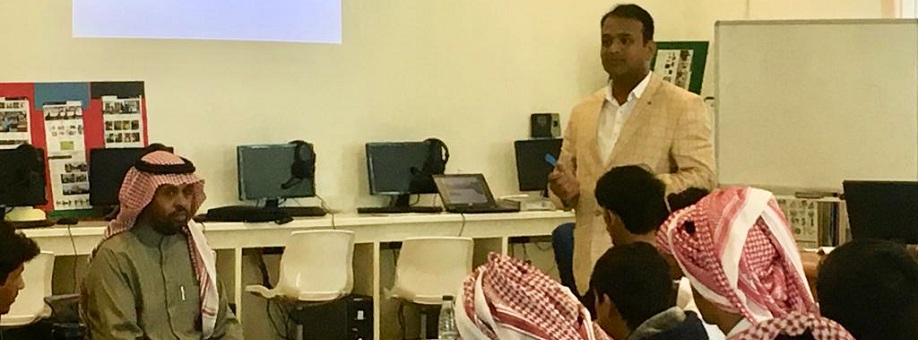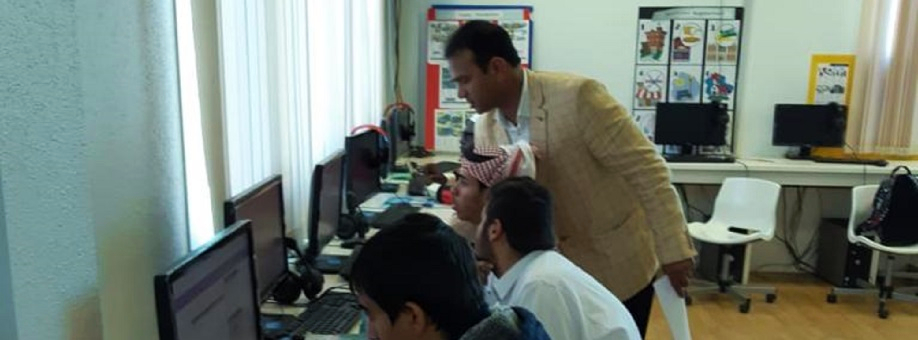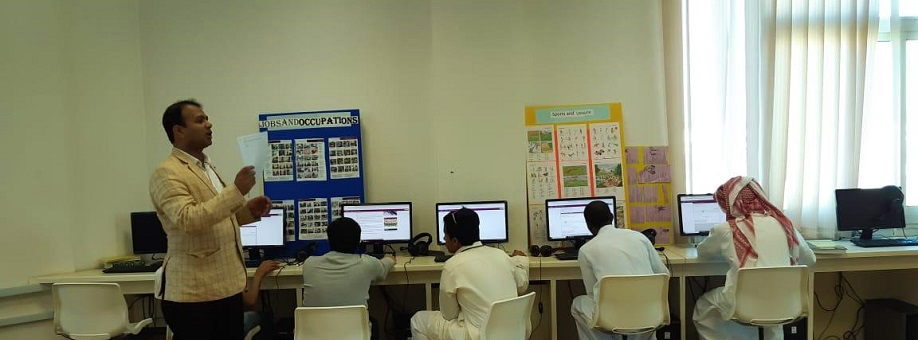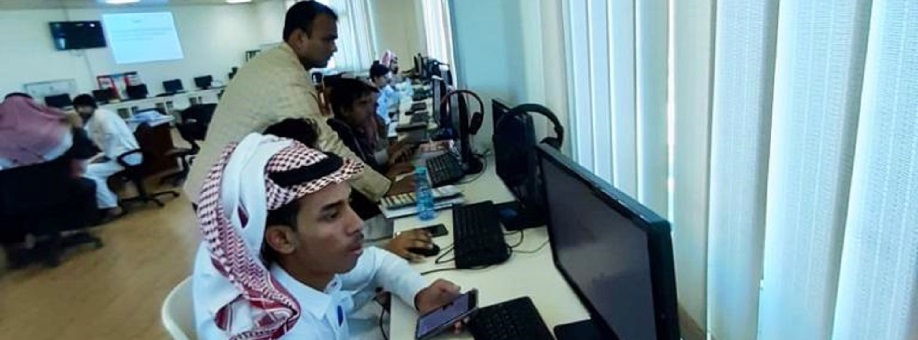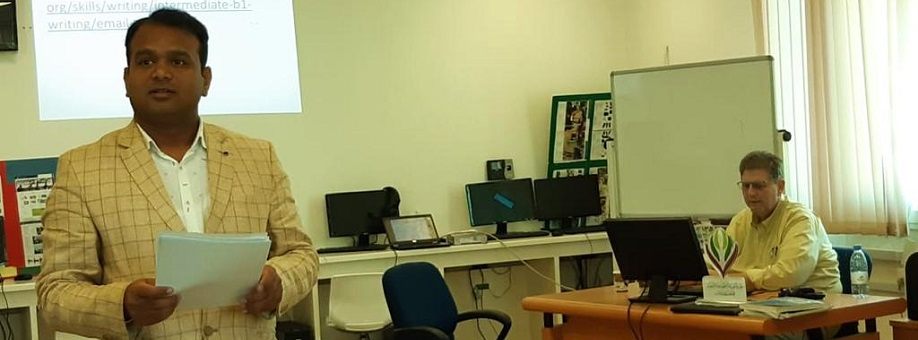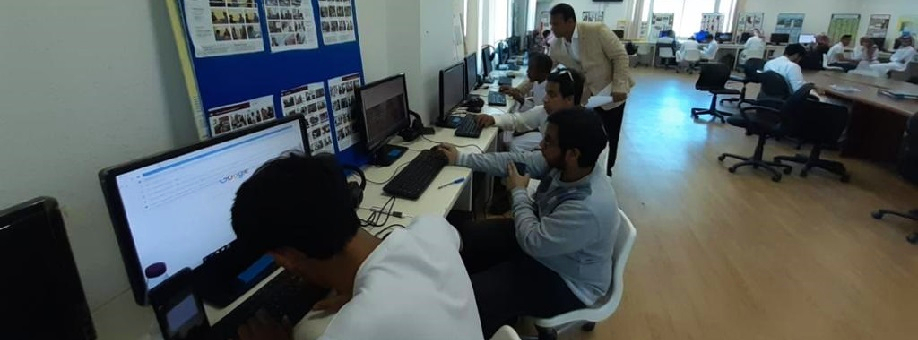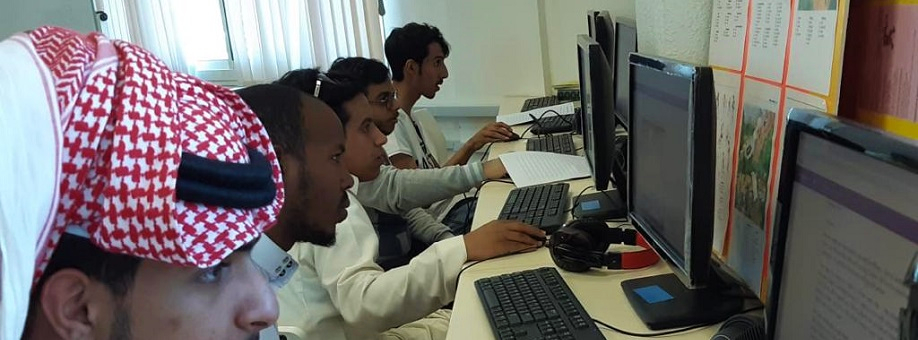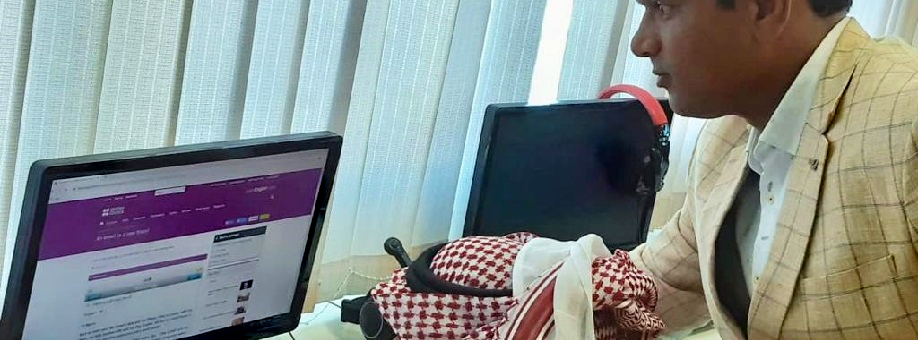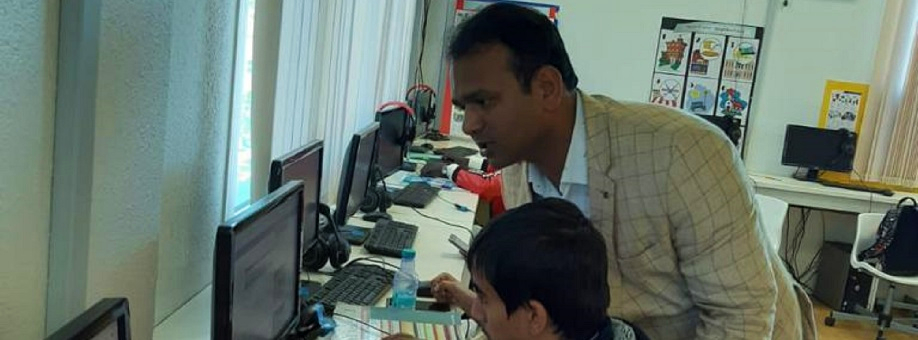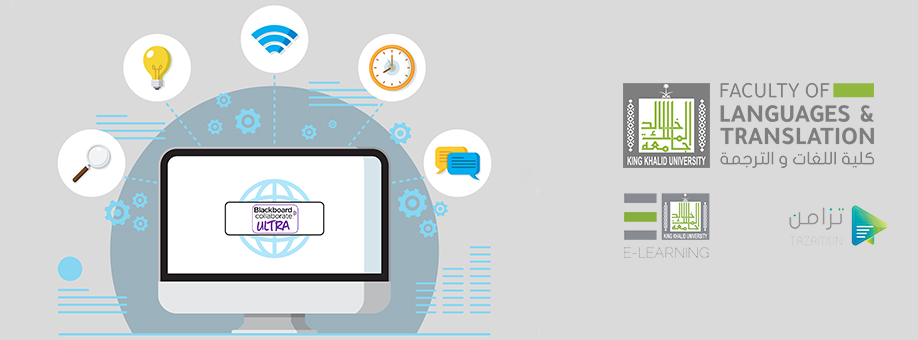E-Writing Workshop a Success in the LEP
On October 22, 2019, E-Learning Unit Supervisor Mohsin Khan held a workshop on 'E-Writing'. The workshop, organized by the E-Learning Unit at the Faculty of Languages and Translation, was for all English language majors. The purpose was to help students improve their English writing using a variety of free services available on the internet.
The focus was on writing strategy, and the presenter guided the audience through the computer-based exercises. As such, students at most any level of English study benefited from the program. More than 25 students ranging from incoming freshmen to graduating seniors participated, and everybody was able to practice using the web-based writing assistance resources.
This workshop was important for all of those majoring in English. Unquestionably, writing is without question the most difficult of the language skills. On average, it takes about 10,000 hours of practice to become a proficient writer. Obviously, writing in the classroom and on exams is not sufficient experience for such an achievement. Students must practice outside of class for a period of years. Further, writing is a 'perishable' skill. Writing ability deteriorates quickly without continual practice. These are the reasons that 'E-Writing' is so valuable.
E-Writing allows students to practice efficiently. The programs can point out errors and make suggestions. This allows the students to write more material with a greater degree of confidence. Before the advent of online writing coaching, a student would need an experienced coach or tutor to sit with him/her to derive a similar benefit. E-Writing allows much higher proficiency in a reasonable amount of time. "In today's E-Writing Workshop, students were exposed to online resources and websites for improving writing skills. Students were informed about online writing skill courses offered at online platforms such as FutureLearn.com, edX, Alison, Coursera, Canvas Network, and Udemy. Students were also familiarized with writing resources of the British Council, BBC and websites for IELTS and TOEFL preparation. Students were given three moderately difficult online writing tasks, and I am happy to say that they enthusiastically participated in all the tasks and completed them," said Mr. Khan.
The Faculty of Languages and Translation is dedicated to providing cutting edge language learning services to all of the students. Those wishing for more information can contact Mr. Khan at mokhan@kku.edu.sa.
Date: 10/22/2019
Source: Faculty of Languages and Translation

